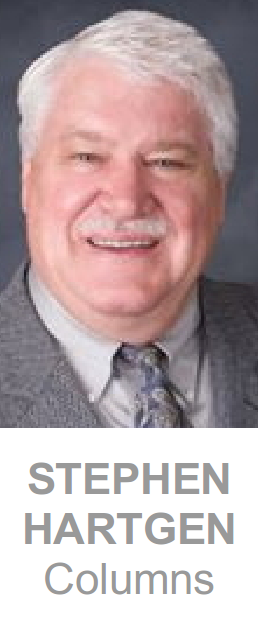
After the U.S. Census reported that Idaho was the second-fastest growing state in the nation in population (as well as speedily in some other ways), some Idahoans may be surprised their home was not among the roster of states gaining an additional congressional district. It hasn’t gotten a new one, after all, in a long time. Isn’t it overdue?
Texas, Florida and North Carolina gained, to no shock. But so did Colorado, Oregon and even Montana.
You might think that Idaho, after 110 years at the two-seat level, a state that’s been growing for several decades, could spread its wings a little further to add one more.
The problem is where Idaho sits in relation to the “bubble.” There is this to consider: It may be in a little more advantageous position for that after the 2030 census.
The “bubble” is the point at which a state, relative to all the other states, crosses over the statistical line in needing a new district, which of course comes at the disadvantage of other states. That border line between states can be close. New York, which lost one congressional seat with this year’s census (rather than the widely-expected two), came within a population count of less than 100 from not losing any at all. (The state on the positive side of the bubble, which came almost as close to losing a district, was Minnesota.)
Idaho started, decades ago, relatively well behind the bubble, and it has had a long way to catch up. (Montana, which had two congressional districts for 80 until the 1990 census, remained close to the bubble and crossed the line this time.) The other problem is this: Even a substantial percentage increase in population may result in a smallish increase, compared to larger states, in “raw” numbers, which is what matters for redistricting.
So, for this year, Idaho’s congressional redistricting won’t be a hot topic of discussion, as it hasn’t been for a long time. (It will be in Oregon, where a sixth district will be added, and the battle may be close and fierce over whether the state’s House delegation goes from its current 4-1 Democratic to 4-2 or 5-1; either outcome is plausible.) In Idaho, where Ada County long has been split between the two congressional districts, the only question has been where exactly in the city of Boise the line will be drawn. Neither Republican district has any realistic prospect for becoming competitive.
Looking ahead, the question for 2030 is where Idaho will be in relation to the bubble - and here we find basis for cautious optimism.
Will Idaho’s population grow relative to the nation, or will it recede? Idaho is eighth in line for one more House district than they got this time. Since just a half-dozen states this time added to their House delegation, that makes Idaho’s position look iffy. But remember that these counts are relative to other states. Several of the states ahead of Idaho this time for another district - New York, as already noted, is one of them - have been in recent decades falling back compared to other states, so Idaho may get closer to the mark as the decade wears on.
Idaho’s growth ever since the mid-80s has been steady at least, and sometimes stronger than that. If the trend lines hold, Idaho may cross the bubble.
Of course, the fact that Idaho has been growing rapidly in recent decades doesn’t necessarily mean it will in the next one. One point to consider: Quite a few people from expensive-living states such as California came to Idaho thinking, correctly, they could buy houses and live cheaper there. That equation is changing as Idaho housing prices roar skyward, faster than in most of the country.
If Idaho does wind up getting a third district, that would dramatically change the map. The simplest and maybe most logical split might involve an Ada-Canyon district, with another district to the north and the third to the east. But the possible variations are endless.
Idahoans have another decade to think about it.






 There are alternatives for working within the system. One, which almost a third of the states has signed on to, involves a compact in which a large group of states would agree that their electoral votes would go to whichever presidential candidate receives the most popular votes nationally. (It would have to be approved by states accounting for at least 270, the number needed to elect a president, to go into effect.) It might be better than the current system, because at least the will of the people is more likely to be directly carried out, but it does have a series of problems of its own, including some questions of constitutionality.
There are alternatives for working within the system. One, which almost a third of the states has signed on to, involves a compact in which a large group of states would agree that their electoral votes would go to whichever presidential candidate receives the most popular votes nationally. (It would have to be approved by states accounting for at least 270, the number needed to elect a president, to go into effect.) It might be better than the current system, because at least the will of the people is more likely to be directly carried out, but it does have a series of problems of its own, including some questions of constitutionality. 








